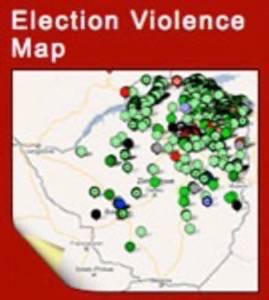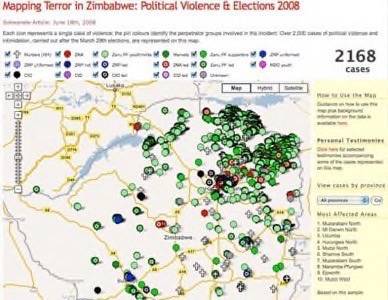Traditionally, the greatest power that governments have held over their people has been information. The promise that connectivity brings to Africa is that people are now using that abundance of information for oversight of government and more interaction with administrations. To say that the propagation of internet and mobile connectivity in Africa has been disruptive is an understatement.

A number of web and mobile applications are undermining the efforts of dictators and totalitarian governments, allowing them to be more readily be held accountable for their actions. In this post we profile some of them.
Democratizing Information Through Technology
When the Ethiopian government instituted an SMS filtering service to censor mobile communication, the developers behind Feedelix responded swiftly. They created their product Feedlix, a java-based client that supports Amharic, Chinese and Hindi characters. The application then uses GPRS, through internet protocols, to mimic SMS and bypass the censoring filter put in place by the government.
Sokwanele is a civic action support group campaigning for freedom and democracy in Zimbabwe. Their website includes an ‘election violence map’ that provides detailed information related to localized occurrences of violence related to the election. During the most recent crisis in Zimbabwe, Sokwanele was used to get information out of the country when the government began restricting communication.

Mzalendo is an aggregation platform for tracking the actions, activities and communication of Kenya’s Parliament. For people who want to make sure their elected officials are staying on task, it’s invaluable.
When Moroccan blogger Mohamed Erraj was jailed for disparaging the government in his online magazine, Hespress, it was through the efforts of other bloggers (like the writers at GlobalVoicesOnline) and people using applications like Twitter that his story made international news. The added pressure of having the whole world paying attention is perhaps what convinced the Moroccan government to let him free where traditionally his actions could have resulted in much harsher punishment.
Rethinking Africa
In conclusion, Africa is producing some very unique and innovative technologies. There’s more to the continent than the things you see on TV – something people, especially in the tech industry, seem to forget. Where most other markets in the world are incredibly saturated, Africa offers the opportunity to start afresh: new ideas and a billion new people to use them.
It’s a big place; nearly one billion people and a land mass where the sum is greater than that of China and the United States combined. For social entrepreneurs and investors, the innovation occurring here is a huge sign of progress that could potentially change the continent’s world standing forever. The most exciting aspect for me, however, is the decreased reliance on developmental aid and foreign groups to provide these solutions. The number of African developers who are beginning to create applications that offer solutions for their own communities is increasing and that, more than anything else, will shape the future of Africa.
“If Africa is surprising, then you’re not paying enough attention.” Ethan Zuckerman at PICNIC08
You can read more articles by Jon Gosier at Appfrica.net.
See also:Social Media in Africa, Part 1
and Social Media in Africa, Part 2: Mobile Innovations

















